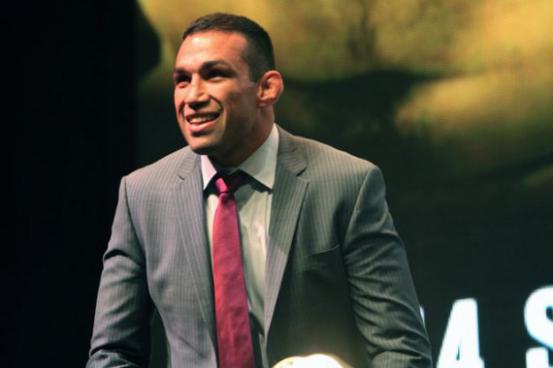- Commissioner’s statement on Ventura, Marte
- Ronnie O’Sullivan: Masters champion ‘felt so vulnerable’ in final
- Arron Fletcher Wins 2017 WSOP International Circuit Marrakech Main Event ($140,224)
- Smith challenges Warner to go big in India
- Moncada No. 1 on MLB Pipeline’s Top 10 2B Prospects list
- Braves land 2 on MLB Pipeline’s Top 10 2B Prospects list
- Kingery makes MLB Pipeline’s Top 10 2B Prospects list
- New Zealand wrap up 2-0 after Bangladesh implosion
- Mathews, Pradeep, Gunathilaka to return to Sri Lanka
- Elliott hopes for rain for Poli
The Bottom Line: UFC 198 a Well-Earned Reward for Brazilian MMA
- Updated: May 10, 2016

Editor’s note: The views and opinions expressed below are those of the author and do not necessarily reflect the views of Sherdog.com, its affiliates and sponsors or its parent company, Evolve Media. Which nation has contributed the most to the development of MMA? There are only three real contenders. There’s the United States, home of UFC 1, the birthplace of more elite fighters than any other country and the locale for the most high-profile fights. There’s Japan, which exported jiu-jitsu to the world, was the breeding ground for cross training before the Ultimate Fighting Championship existed and produced Pride Fighting Championships before falling on hard times and fading in relevance. Then there’s Brazil. The home of the Gracie family, Brazil saw the development of vale tudo and the luta livre-Brazilian jiu-jitsu rivalry. Royce Gracie was instrumental in making the UFC a success, and Rickson Gracie was pivotal to making Pride a success. Over the years, Brazil has produced some of the biggest icons in the history of the sport, from the Gracies and Nogueiras to Anderson Silva and Wanderlei Silva. Unfortunately for the proud Brazilian fighters, trainers and promoters who have contributed so much to the sport, Brazil was held back from MMA dominance in one key way. The Brazilian economy, while growing, doesn’t have the economic might of more developed nations that share an interest in the rising sport. With more money abroad, elite Brazilian fighters were forced to mostly compete overseas. Many moved to the United States to train, as well. The sport has remained very popular in Brazil, but the country doesn’t get anywhere near the volume of high-level MMA commensurate with the sport’s national popularity. To date, the UFC has run 24 events in Brazil, fewer than it has run at the Mandalay Bay Events Center in Las Vegas. Most of those cards have been smaller TV events without the star power of the biggest pay-per-views. The issue isn’t the popularity of the sport in Brazil. It’s simple economics. The UFC could charge much more for tickets in other markets even before the Brazilian economic decline. That’s why the UFC has been running so many big shows in Las Vegas in the past year. There’s substantially more …
continue reading in source www.sherdog.com
